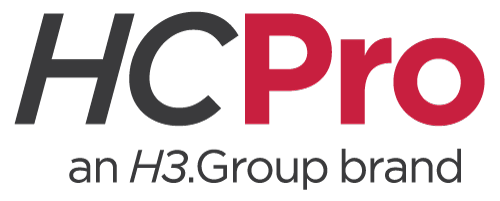|
 |
|
| ||||
| ||||
| ||||
 | |
| THE SHIFT TO A NEW, PROPOSED PAYMENT MODEL | |
Goodbye RUG-IV, Hello RCS-1: How to Achieve Quality Outcomes Under a New Payment System On July 31, 2016, CMS announced that the payment levels currently used in the prospective payment system (PPS), resource utilization group (RUG) IV, will be replaced in FY2019 by the resident classification system (RCS-1). This is a complicated and significant change for providers. The majority of the changes that will occur with the implementation of RCS-1 are based on claims history and MDS data submitted. In order to understand and prepare for this shift, providers will need to learn how to achieve quality outcomes and higher reimbursement under a system that will offer different incentives. | |
| NEW SURVEY PROCESS GUIDANCE | |
Reduce Citation Risk: Understanding Phase 2 Requirements for Survey ReadinessA thorough review and update of the implementation of Phase 2 requirements, as well as preparation tactics for survey readiness, will help long-term care providers mitigate citation risks. This review will also help providers understand what to expect as surveys transition throughout the year to the new outcome-oriented survey format. | |
| RISK MANAGEMENT TRAINING | |
How to Transition to an Alarm-Free Facility Without Compromising Resident SafetyIn October 2017, alarms were added to Section P of the Minimum Data Set (MDS), requiring providers to report alarm use for each resident. Surveyors will be able to use MDS data to determine whether alarms are being used as intended—for resident safety, not staff convenience. Changing How We Care Plan: Best Practices for Resident Quality Outcomes in Long-Term CareLong, complicated, computer-generated care plans aren’t doing your staff any favors—they’re too bulky to be functional. Join our program to learn how to create a compliant care plan that smoothly integrates into the care process and reflects a true, individualized, resident-focused plan of care. Implement, Improve, and Utilize a Successful QAPI Approach for Long-Term CareQuality Assurance & Performance Improvement (QAPI) mandated programs are essential to improving the quality of life, quality of care, and services delivered in skilled nursing facilities (SNF)—but developing and implementing a successful and effective program can be challenging. Learn how to turn theory into practical approaches. | |
| NEW INFECTION CONTROL RULES | |
CMS’ New Infection Control Requirements: What You Need to Implement a Successful Antibiotic Stewardship ProgramIn the past two years, federal agencies have taken a hard look at infection control practices in long-term care facilities and have demanded that this area of care delivery improve. As of November 28, facilities are now required to have an effective antibiotic stewardship program in place. | |
| REDUCE YOUR FACILITY'S AUDIT RISK | |
Analyzing the SNF UB-04 to Help Your Facility Reduce Audit RiskIncreased emphasis from the Recovery Auditors coupled with the longtime scrutiny of the MACs and the OIG make it more important than ever that SNF billers submit accurate claims to Medicare to avoid having reimbursement taken back during an audit. Consolidated Billing for SNFs: A Close Look at the Five Major CategoriesA thorough understanding of how consolidated billing works will help billing and administrative staff determine which residents are subject to consolidated billing when there is a leave of absence, pay the correct vendor invoices, communicate efficiently with other vendors and physicians, and determine the Medicare allowable amount for services provided by outside vendors. Medicare Part B: Get the Most Out of Your SNF ReimbursementUnderstanding the many requirements for billing Medicare Part B can be a daunting task. Questions and issues will arise regarding claim discrepancies, and you’ll need to know how to respond. Being able to verify what’s on the claim before it’s billed as well as having solid communication between billing, nursing, and therapy is paramount to successful reimbursement. | |
|